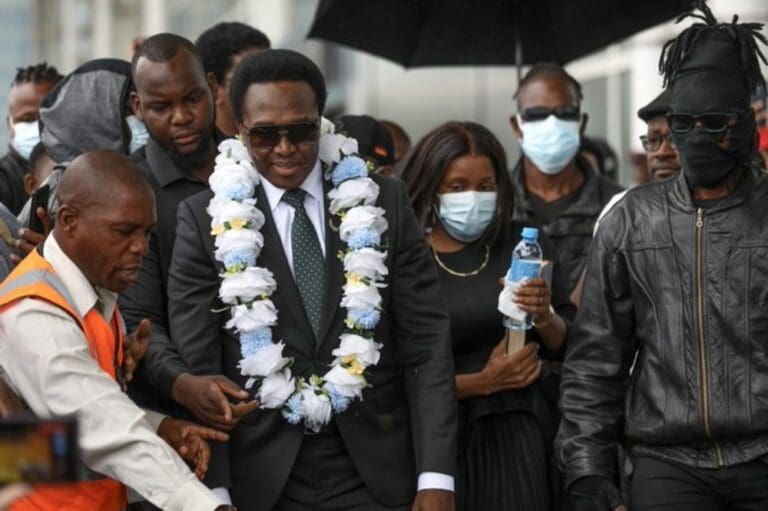Mozambique’s main opposition leader Venâncio Mondlane has expressed willingness to serve in the government if President Daniel Chapo meets his demands.
In separate interviews with the BBC, both Mondlane and Chapo have indicated a potential for establishment of harmonious relations.
Mondlane, who rejected his defeat in the October elections, has accused Chapo of rigging the results – a claim that Chapo has denied.
Chapo of the governing Frelimo party was officially sworn in as president on January 15, about a week after Mondlane held his own inauguration.
Despite the contentious atmosphere, Mondlane has decided to suspend protests for the first 100 days of Chapo’s term, provided that Chapo meets certain conditions.
These include the unconditional release of approximately 5,000 people detained for participating in demonstrations against the election result, financial compensation to the families of those killed by police during the protests, and free medical treatment for about 200 people injured by the police.
Mondlane has stated that if Chapo agrees to these demands, it would “open a window” for negotiations.
He also expressed his readiness to work in Chapo’s government, provided there is a genuine interest in collaboration.
“Yes, if he has a genuine interest to work with me. He’s got a chance to invite me to the table of dialogue,” Mondlane told the BBC.
Chapo, on his part, has set up a team to consider whether Mondlane should be invited to join a new “inclusive” government.
This development comes after months of unrest that have resulted in the deaths of approximately 300 people.
Analysts, however, note that while the move could potentially pave the way for a more collaborative approach to governance, Mozambique’s crisis is more deep-seated than the issues exposed by the current post-election unrest.
“The recent events in the country are just the tip of the iceberg. The real question is whether an inclusive government could help stabilize a country that already had other challenges prior to the elections?” said political analyst Donald Porusingazi.
He said the unrest that followed the disputed October 2024 elections is symptomatic of general misgivings with the economic management of the economy and rampant corruption in a country with some of the world’s largest deposits of natural gas.
“The stakeholders need to address the underlying issues that gave birth to the emergence of the jihadist uprising in the north of the country for the past seven years and the 2023 unrest that accompanied the outcome of municipal elections.”
Frelimo has governed Mozambique since it won independence from Portugal in 1975, but the party has lost a great deal of public support in recent years.
Government officials in Mozambique have frequently been implicated in corruption scandals, most notably the infamous US$2 billion hidden debt affair, also known as the “tuna bond scandal.”
This scandal severely impacted the nation’s economy, drying up most foreign investment and causing a sharp depreciation of the local currency, the metical, in 2016.
Despite possessing vast hydrocarbon resources, Mozambique remains one of the least developed countries globally, ranking 185th out of 191 nations on the UN Human Development Index in 2022.
The population’s frustration with the ruling party’s tight grip on the state apparatus has been mounting, with citizens demanding more democratic space, accountable governance and better prospects for the future.
This sentiment is particularly intense among young urban dwellers who are active on social media and form the core of Mondlane’s support base
It, therefore, remains to be seen whether Chapo and Mondlane – who has a huge following among disgruntled young people – can find common ground and work together for the betterment of Mozambique.
JN/APA


